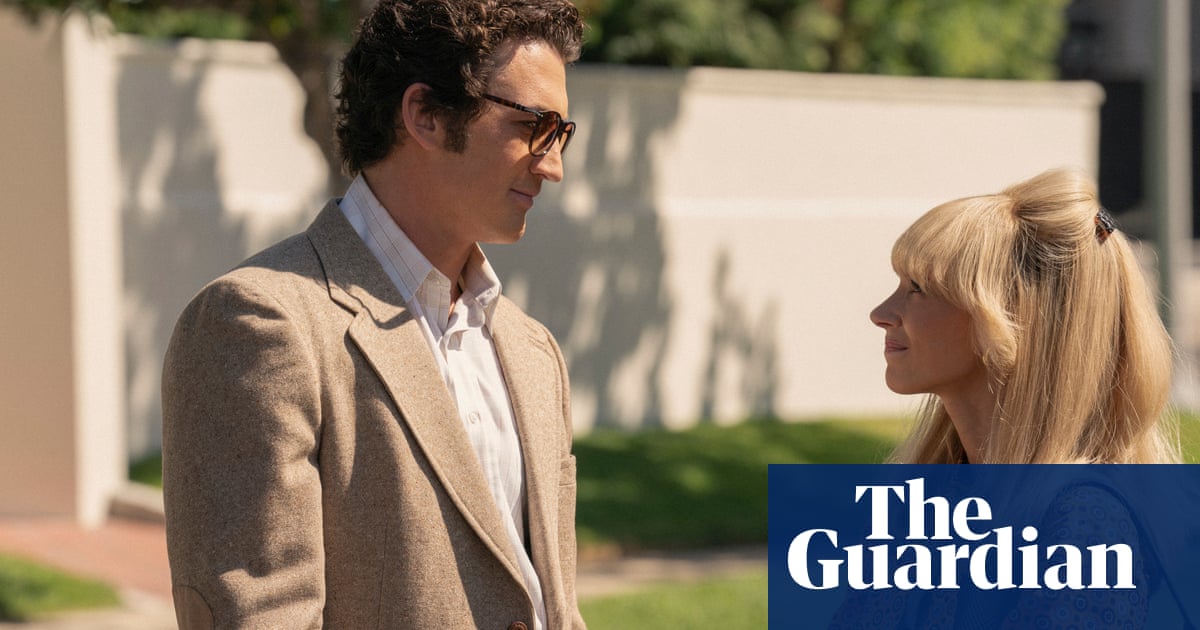
Why the Godfather making-of series The Offer has a nostalgia problem
With anxieties rising about the future of cinema these last few years, the 50th anniversary of The Godfather allows Hollywood to remind viewers they made a perfect thing once, and could do so again.
This year’s Oscars featured a tribute to the 1972 classic, with director Francis Ford Coppola offering brief remarks while flanked silently by Al Pacino and Robert De Niro. Now, the Paramount+ limited series The Offer chronicles the film’s turbulent production, as told by Al Ruddy, who serves as the show’s executive producer and main character portrayed by Miles Teller. Featuring numerous monologues on the magic of cinema and an endearing let’s-put-on-a-show vibe, the series fashions itself as a love letter to the era of New Hollywood, when maverick directors like Coppola battled Hollywood suits for creative control and won, conjuring some of cinema’s most lasting works in the process.
There is, however, a dark underbelly to the series, and the era it depicts, which Hollywood isn’t so keen to examine. Put simply, The Offer has a nostalgia problem. It portrays and pines for an antiquated era, when male producers could sleep with their employees, while neglecting their supportive women partners at home. It relegates the majority of its female characters to the sidelines, framing them as obstacles the men must overcome to achieve their artistic and professional goals. The exception is Bettye, Ruddy’s intrepid assistant played heroically by Juno Temple, but while the show treats her as an equal to her male bosses, it does so only by defining her through the same tired male cliches. We see her walk brazenly into the office of a mob boss to ask a favor, and we are floored by her moxie, even though we’ve already seen Ruddy do it several times.
Ultimately, The Offer turns both its men and women into caricatures, so it’s hard to get too worked up about its inequality. It’s a routine case of Hollywood self-mythology, but it’s frustrating this is the myth Hollywood is investing in right now. In the wake of the #MeToo movement, one might have hoped the industry would be more introspective about its past, and more honest about the women who were harassed and treated unfairly under the old system. Instead, it appears they are doubling down on the male-dominated canon and reinforcing the status quo. In addition to The Offer, there is another project on the way about the making of The Godfather – directed by Barry Levinson and starring Oscar Isaac as Coppola —–while Ben Affleck is slated to direct a film on the making of Chinatown. Apparently, Hollywood thinks that celebrating a film by Roman Polanski, a convicted rapist, is the right move in 2022.
It’s especially frustrating because the female artists have their own stories to tell. Incredible film-makers like Barbara Loden (Wanda), Stephanie Rothman (The Student Nurses), and Joan Micklin Silver (Hester Street) never got the studio support that their male counterparts did, and their careers stalled before they really began. Then there’s the case of Elaine May, who produced two hits right off the bat, A New Leaf and The Heartbreak Kid, but was considered too difficult to work with by the studios. “Difficult” is rarely an attribute that sinks the career of talented male directors, as long as their films make money and win awards. The stories of these women deserve to be remembered and incorporated into the legend of this era, at least if we’re serious about making changes in Hollywood.
While the industry itself seems content to ignore the realities of their own past, efforts are being made elsewhere. Missing Movies, an organization dedicated to finding and distributing lost films, is putting a special focus on female film-makers like May and Mary Harron since their works are more likely to fall out of print than those of male directors. Books are being written, like Maya Montañez Smukler’s Liberating Hollywood: Women Directors and the Feminist Reform of 1970s American Cinema, that highlights the great gains made by woman directors in the era.
Even Hollywood recognizes these achievements: they gave Elaine May an honorary Oscar this year, although it was bumped to a pre-telecast ceremony to make room for, among other things, a tribute to The Godfather.
It’s a pitched battle, with scholars and historians on one side, and Hollywood’s guardians of power on the other. In defense of the industry, it’s understandable why executives would choose to make a series or film about the making of The Godfather, instead of Loden’s 1970 film Wanda or May’s Mikey and Nicky, which had its own famously troubled production. After all, they want people to see their project, and those films have nowhere near the cultural footprint of The Godfather. That’s a self-perpetuating cycle Hollywood needs to break. There is no proven audience for stories about these films because they never made it into the canon in the first place – and that’s because their female directors were marginalized at the time, by executives, producers and the journalists who created the legend of New Hollywood. You know, the same characters who are lionized in shows like The Offer.
But perpetuating that marginalization only ensures that it will continue, and it’s hard to believe the industry is taking its problems with women seriously when, at the first sign of trouble, they revert to the same, old man-made myths.





























































